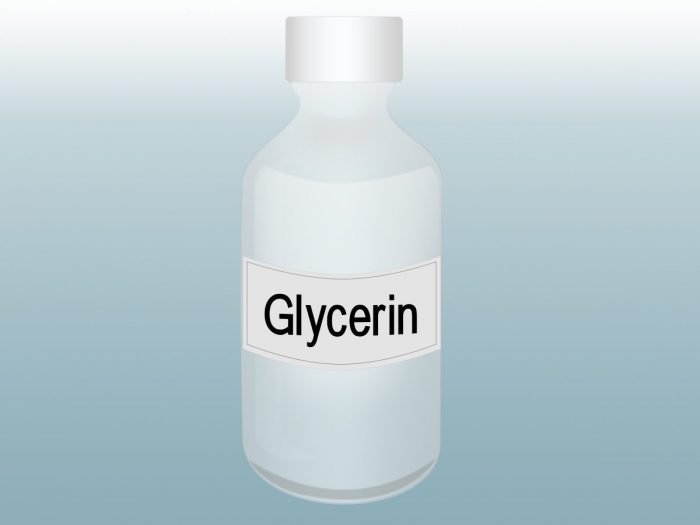Glycerin is a natural remedy that is used in skincare products to lock in moisture and give you smooth, touchable skin.
Glycerin
Glycerin is a simple polyol compound that is extracted from triglycerides found in different plant and animal sources, which when treated with alcohol give glycerin as a byproduct. It is a viscous, humectant, colorless, odorless and sweet liquid. Also known as glycerol or glycerine, this compound can be used as a filler or a solvent in certain food preparations, as well as a sugar substitute that doesn’t damage your teeth. [1]
In terms of cosmetic applications or use on the skin, it is considered safe to use glycerin, and in fact, glycerin soaps are very popular with people who have overly sensitive skin. Aside from avoiding irritation, there are many other potential benefits of using glycerin for the skin. [2]

Glycerin Photo Credit: Shutterstock
Benefits of Glycerin for the Skin
The top benefits of using glycerin for skin include the following:
- Moisturizing the skin
- Delaying premature aging
- Maintaining water balance
- Clearing up acne
Let us discuss them in detail below.
Cleanser and Toner
Using this compound can even out the appearance of your skin, soothe inflammation, and eliminate discoloration.
Moisturizer
Glycerin acts as a barrier to water loss, drawing moisture up from the deeper levels of the skin, but not letting it escape. [3]
Water Balance
Glycerin attracts water from the air and minimizes water loss due to evaporation to maintain water balance.
Wound Healing
Studies have found that topical use of glycerin can speed the healing process for abrasions and bruises.
Youthful Appearance
As we age our skin cells start to lose moisture, which is the primary cause of wrinkles. Glycerin penetrates into the inner layers of the skin to deeply moisturize, helping to plump up the skin and reduce the appearance of wrinkles, age spots, and blemishes. [4]
Acne
Occlusive materials, such as petrolatum, can cause blockage in the pores to cause acne, but glycerin doesn’t do this. The cleansing and anti-inflammatory nature of glycerin makes it a favorite home remedy for people suffering from acne. It reduces the oiliness of the skin and clears acne scars. [5]
Psoriasis and Eczema
The moisturizing properties of glycerin can reduce the flare-ups, itching, and irritation that occur in fungal infections like psoriasis and eczema.
How to Use Glycerin for the Skin?
When using glycerin on your skin, there are a few ways you can apply it, but the simplest approach is to just use a cotton ball and liquid glycerin.
- Wash your face and gently pat dry.
- Dip a cotton ball into the glycerin and massage it around your face and neck.
- Avoid getting the glycerin in the eyes, lips, nose or mouth.
- Leave the glycerin in place until it absorbs completely.
This approach is perfect for using glycerin as a moisturizer, toner and acne treatment. You can also mix glycerin with clays, powders or essential oils to create facial masks or facial cleansers.
Glycerin for Skin Side Effects
There are some side effects to be wary of when using glycerin for skin, particularly in excess. When too much of this is used, the following conditions can occur:
- Skin dehydration: It can cause the skin to become dehydrated.
- Allergy: Allergic reactions can include a rash, itchiness, hives, and redness, among others.
- Acne: Excess use of glycerin can attract dirt due to stickiness and cause acne and infections.
Be careful where you apply glycerin, as contact with sensitive membranes like eyes can cause discomfort.
Do’s and Don’ts When Applying Glycerin on the Skin
- Due to increased skin sensitivity, wear sunscreen when using glycerin topically. [6]
- Use a small amount, to begin with, and monitor if there is any reaction.
- If you notice any side effects, discontinue use immediately. Avoid excess use.
- Blend glycerin with rosewater or other essential oils to improve its effects.
